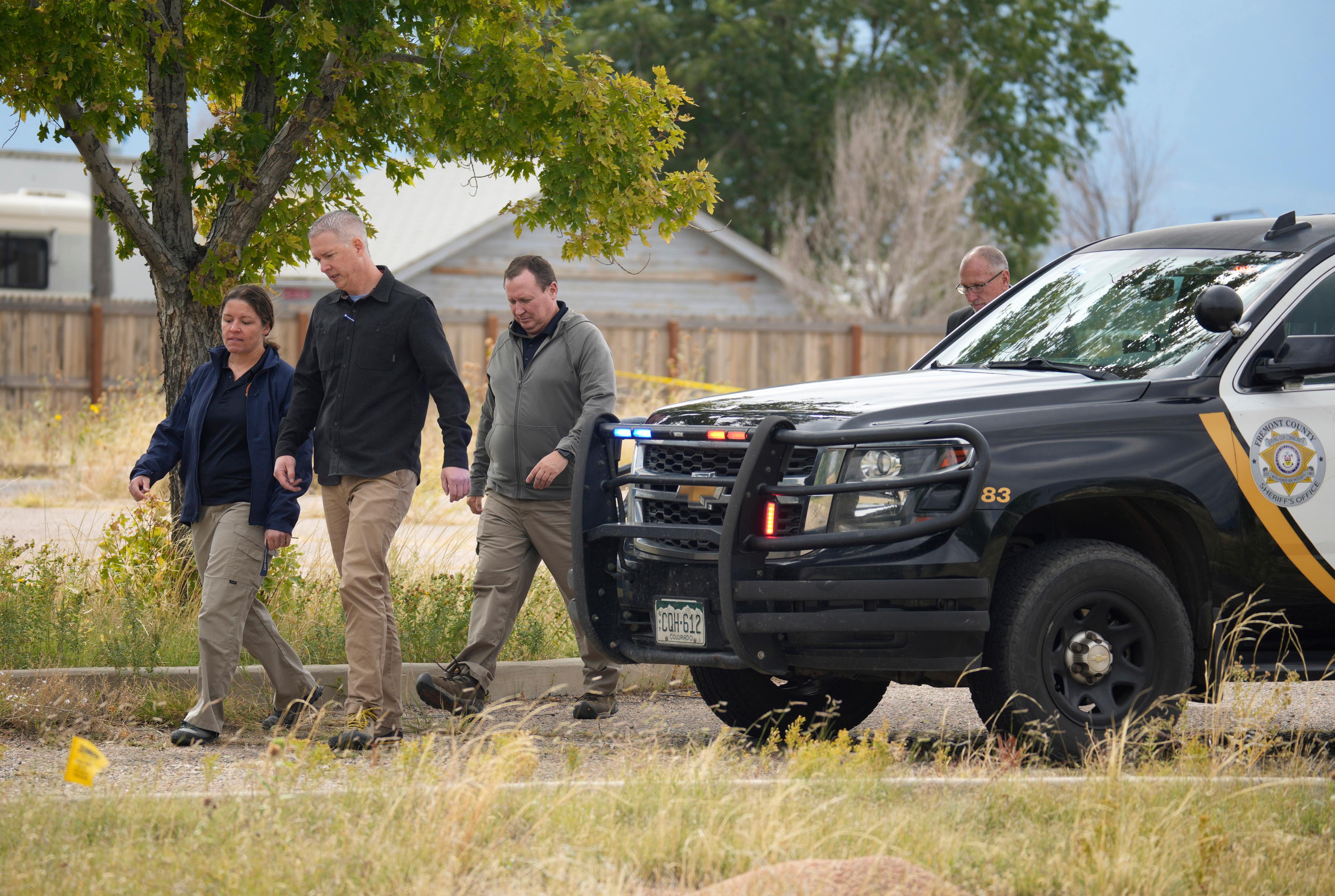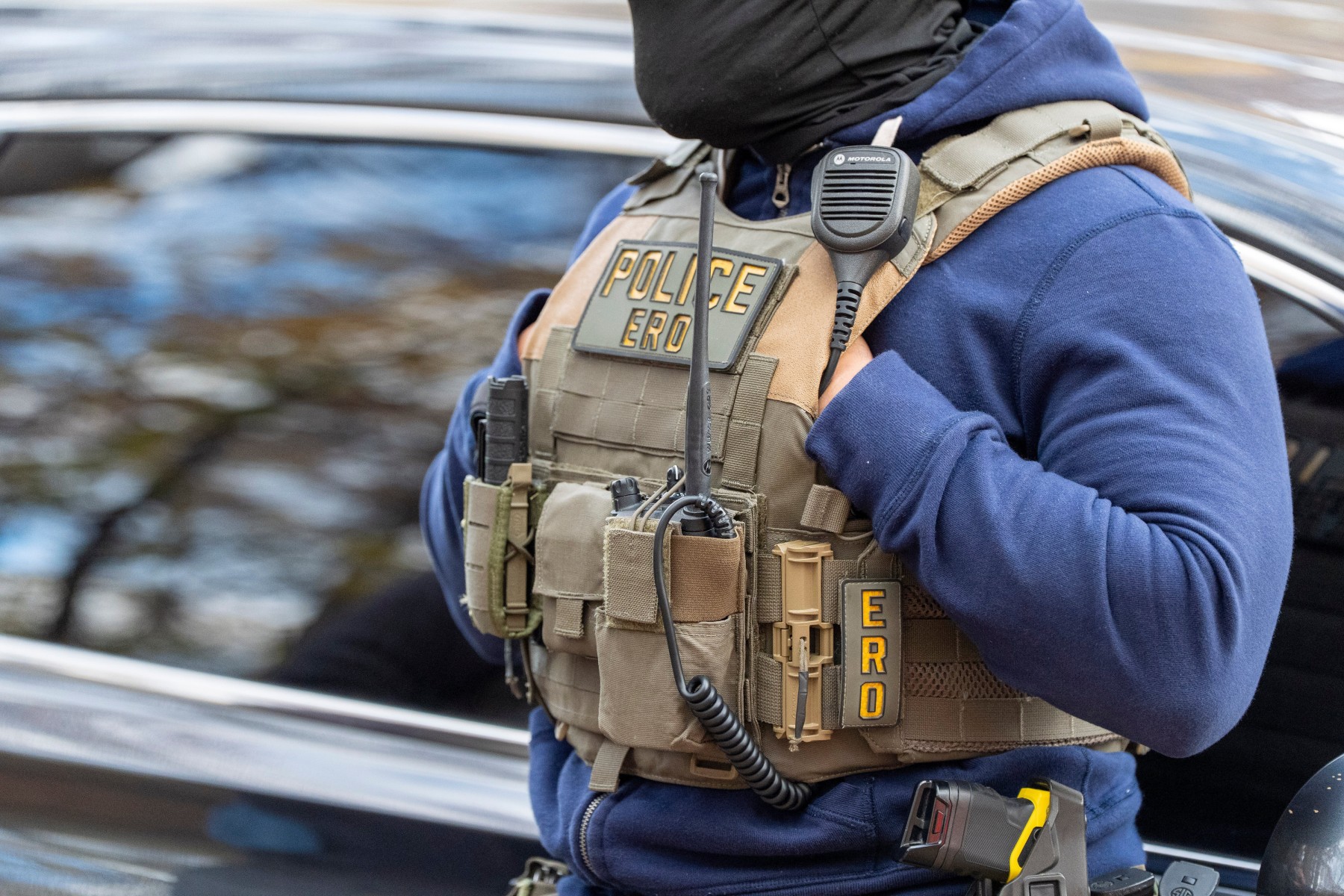
Federal immigration authorities picked up and detained a family who had a check-in at the Denver Immigration Court on Thursday, a novel move that advocates say has the potential to chill immigration proceedings in the state.
The family, a mother, father and a small child, showed up at the court in downtown Denver Thursday morning and received a dismissal of removal order, which would have allowed them to remain in the country until further proceedings, said Emily Brock, an attorney at the Rocky Mountain Immigrant Advocacy Network, who witnessed the detention.
Then, speaking in Spanish, Immigration and Customs Enforcement agents asked the family to come with them. Brock said she asked the agents for four minutes so she could talk to the family about their rights and they said no. She said she began shouting their rights in Spanish as loud as she could.
“The face of that child,” she said. “It doesn’t seem like this should be the way it is.”
Brock said the family was going to be taken to a family detention center — all of which are currently out of state. She didn’t immediately know anything more about the family, including what country they were from.
Detaining people at immigration court is a new frontier for the federal government. Similar situations have played out in recent weeks in Nevada, Arizona, New York and other places across the country as ICE continues to expand enforcement actions.
This move has a particular script, immigration advocates say, which is that a family or a person who has been in the country for less than two years shows up for a court appearance and the federal government terminates their cases in front of the judge.
Then, as they walk out of the courtroom buoyed by the stay, they are detained outside of the doors, lawyers say.
So, instead of an asylum claim playing out over years of due process and a credible fear interview, the person is put into expedited removal proceedings, which curtails that to several hours.
A spokesman for ICE in Colorado did not immediately respond to a question about the morning’s detention, or whether it represented a shift in tactics in the state.
Jordan Garcia is the program director for the American Friends Service Committee’s Colorado Immigrant Rights Program. He said actions like this will further drive people trying to follow the due process into the shadows.
“People are doing the best they can to do everything they’re supposed to do,” he said. “And they’re still getting grabbed. That’s pretty reprehensible.”
Court proceedings continued uninterrupted inside the building after the family was detained just after 8 a.m.
In previous administrations, including President Trump’s first term, officials eschewed going to criminal and immigration courthouses for immigration enforcement actions as a part of a bigger directive to preserve safe or sensitive spaces, like hospitals and schools, where undocumented people can go without fear.
On Inauguration Day, though, Trump rescinded that policy, which means ICE agents are free to go to courthouses for immigration enforcement actions. Colorado has a state law that prohibits immigration agents from detaining people in or near state courthouses.
Earlier this year, ICE officials were camped out at the courthouse in downtown Glenwood Springs, watching dockets and detaining people who were coming in for criminal court proceedings. The chief judge of the 9th Judicial District issued an order asking them to stop, citing Colorado’s state law.
- Judge bars federal government from using Alien Enemies Act to deport Venezuelans from Colorado
- Federal appeals court denies Trump administration’s request to throw out a ban on Salvadoran deportations
- Western Slope judge warns ICE to stop civil immigration actions in courthouses
- As ICE expands its Colorado efforts, many without criminal records are caught in a wide net









